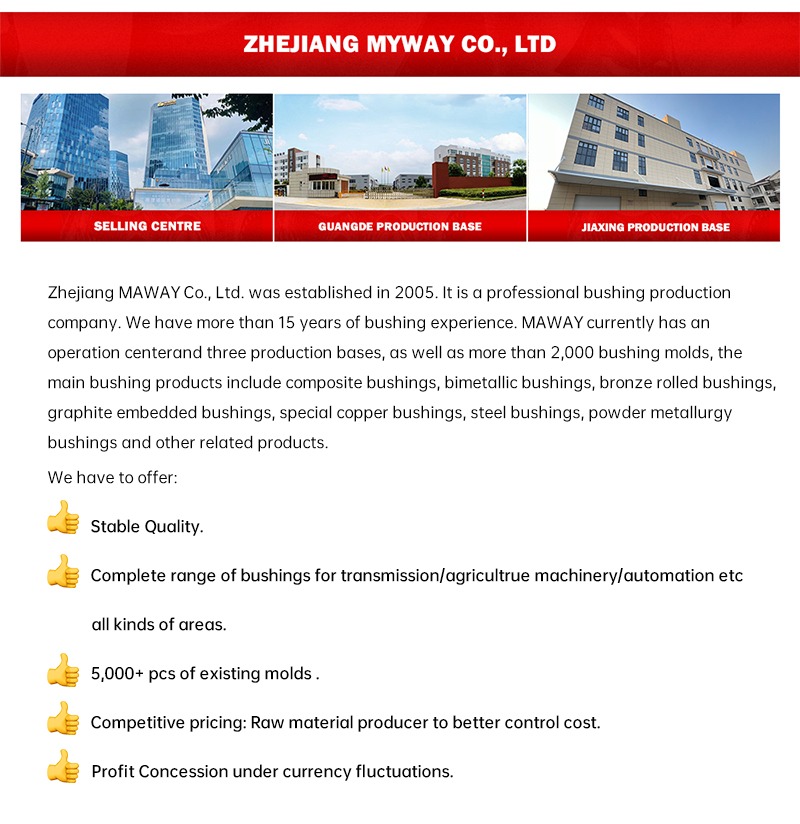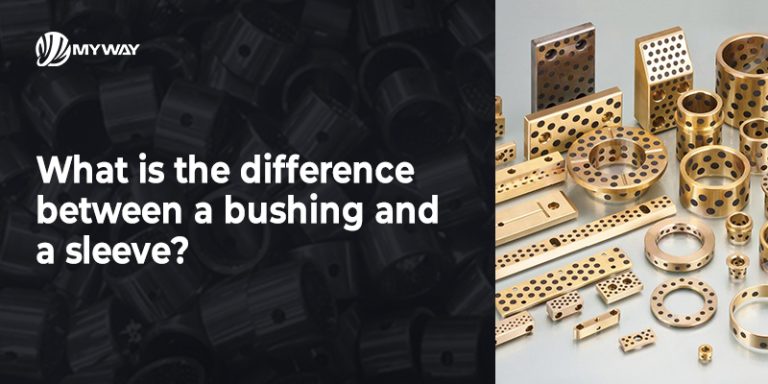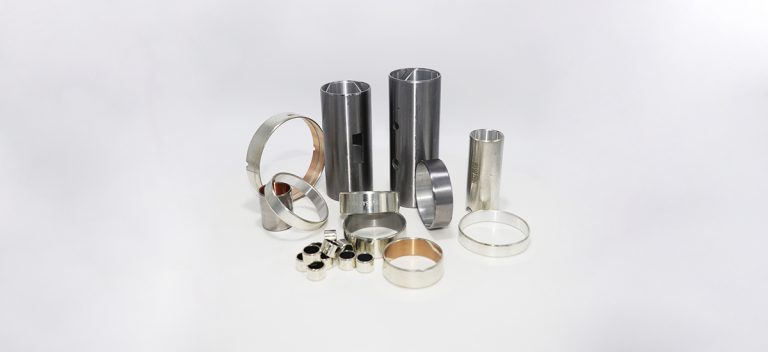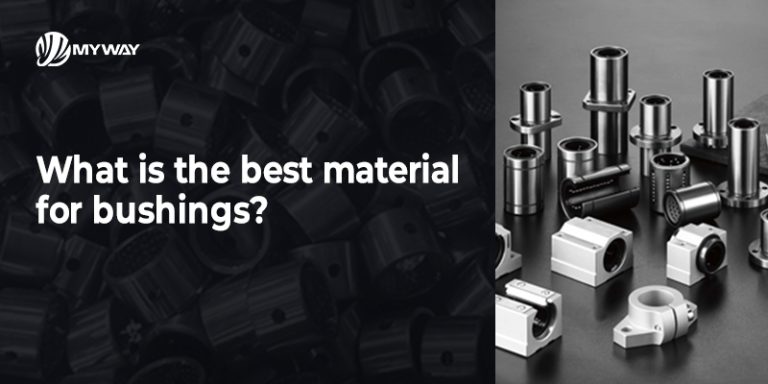How to choose right bushings in construction machinery

Introduction
In the field of construction machinery, bushings are an indispensable and important component. They play a crucial role in various mechanical systems, especially in heavy-duty and high friction working environments. This article will explore the role of bushings in construction machinery and provide guidelines for selecting suitable bushings.


The function of the Bushing
1. Reduce friction
Bushings are mainly used to reduce friction between mechanical components. By providing a buffer layer between moving parts, the lining can effectively reduce friction and extend the service life of mechanical components. For example, using bushings at the connection between the boom and bucket of an excavator can greatly reduce wear between these components.
2. Absorb vibrations
Vibration is inevitable during the operation of heavy machinery. The liner, through its elastic material properties, can effectively absorb and alleviate these vibrations, thereby protecting mechanical components from excessive wear and damage.
3. Load bearing capacity
The liner can also withstand high loads, especially in heavy machinery. They can evenly distribute loads, prevent local stress concentration, and avoid wear of mechanical components.
4. Simplify maintenance
The use of bushings can make maintenance of mechanical components easier.
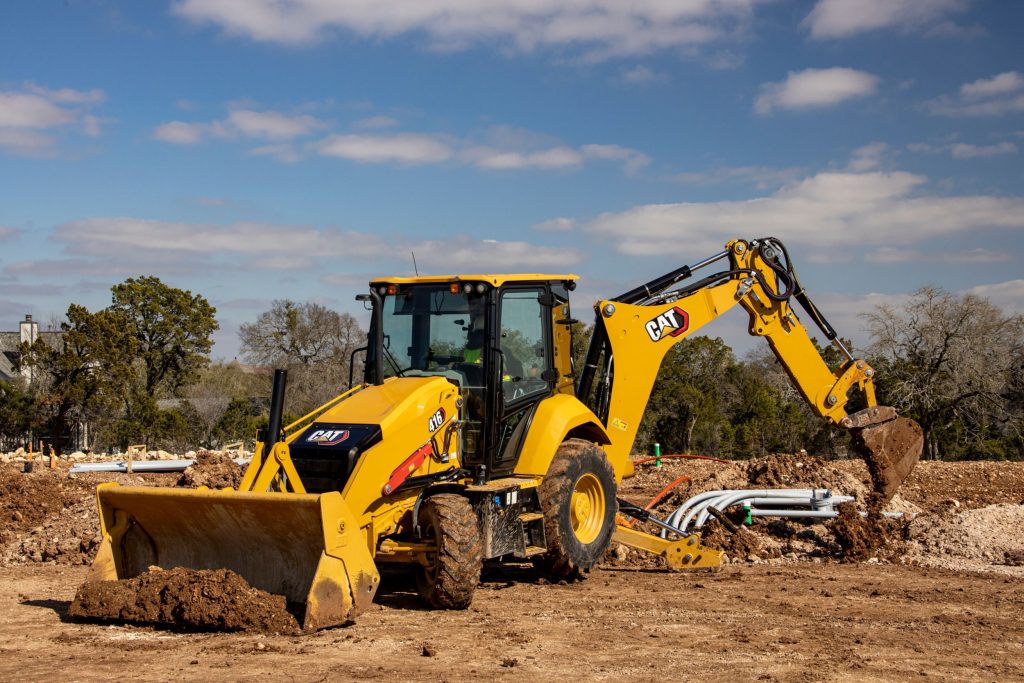

How to choose the appropriate bushing
Choosing the appropriate lining is crucial for ensuring the efficient operation of construction machinery. Here are some key considerations:
1. Material selection
The material of the lining directly affects its performance and lifespan. Common lining materials include metal (such as bronze, stainless steel) and non-metal (such as nylon, polyurethane). Metal bushings usually have higher load-bearing capacity and wear resistance, while non-metallic bushings have better vibration reduction and self-lubricating performance.
2. Working environment
The selection of bushings should be determined based on the working environment of the machinery. It is particularly important to choose materials with high temperature resistance and corrosion resistance in high-temperature or corrosive environments. In dusty or muddy environments, bushings with good self-lubricating performance can reduce maintenance frequency.
3. Load and speed
Understanding the load and speed during mechanical operation is the basis for selecting bushings. In situations with high loads and low speeds, metal bushings may be more suitable, while in applications with medium to low loads and high speeds, non-metallic bushings may perform better.
4. Dimensions and tolerances
The size and tolerance of the liner have a significant impact on its performance. Choosing appropriate dimensions and precise tolerances can ensure the stable operation of the liner in the mechanical system and reduce wear.
5. Maintenance requirements
Different types of bushings have varying maintenance requirements. Metal bushings usually require regular lubrication, while self-lubricating bushings can reduce the frequency of lubrication maintenance. In situations where regular maintenance is difficult, self-lubricating bushings may be a better choice.
Summary
Bushings play an important role in construction machinery, and selecting the appropriate lining can greatly improve the performance and service life of the machinery. In the selection process, it is necessary to comprehensively consider factors such as materials, working environment, load, speed, size, and maintenance requirements. By reasonable selection and regular maintenance, construction machinery can ensure stable operation under various harsh conditions.
I hope this guide can help you better understand and select bushings suitable for your construction machinery. If you have any questions or need further advice, please feel free to contact us at any time.
